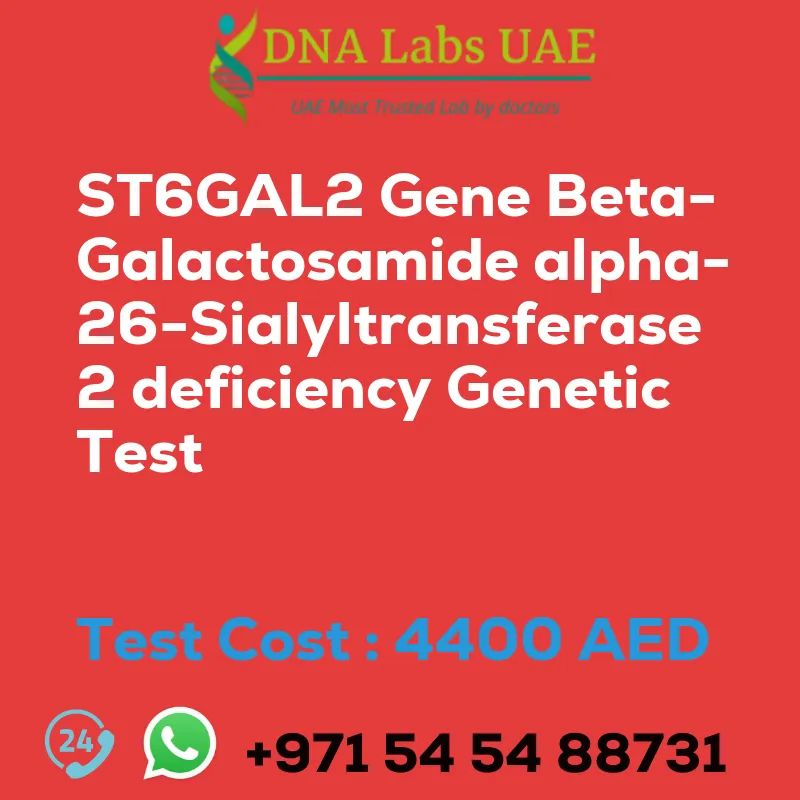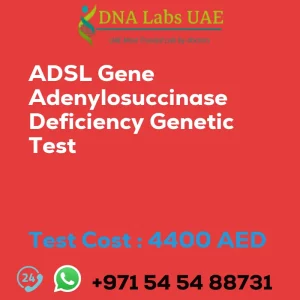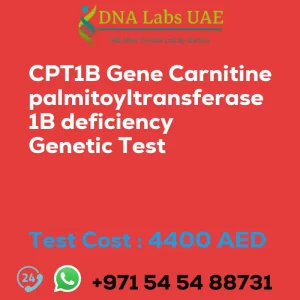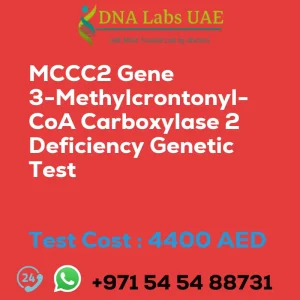ST6GAL2 Gene Beta-Galactosamide alpha-26-Sialyltransferase 2 deficiency Genetic Test
Components
Price: 4400.0 AED
Sample Condition
Blood or Extracted DNA or One drop Blood on FTA Card
Report Delivery
3 to 4 Weeks
Method
NGS Technology
Test Type
Metabolic Disorders
Doctor
General Physician
Test Department
Genetics
Pre Test Information
Clinical History of Patient who is going for ST6GAL2 Gene Beta-Galactosamide alpha-2,6-Sialyltransferase 2 deficiency NGS Genetic DNA Test A Genetic Counselling session to draw a pedigree chart of family members affected with Beta-Galactosamide alpha-2,6-Sialyltransferase 2 deficiency
Test Details
The ST6GAL2 gene encodes for the enzyme beta-galactosamide alpha-2,6-sialyltransferase 2. This enzyme is involved in the process of adding a sugar molecule called sialic acid to proteins or lipids on the cell surface. Sialic acid plays a role in various cellular functions, including cell-cell interactions, cell signaling, and immune responses.
Deficiency in the ST6GAL2 gene can result in a condition known as ST6GAL2 deficiency. This genetic disorder is characterized by the reduced or absent activity of the beta-galactosamide alpha-2,6-sialyltransferase 2 enzyme. As a result, there is a decrease in the amount of sialic acid on cell surfaces.
A next-generation sequencing (NGS) genetic test can be used to identify mutations or variants in the ST6GAL2 gene. This test involves sequencing the DNA of an individual to identify any changes in the genetic code that may be associated with ST6GAL2 deficiency. NGS technology allows for the simultaneous analysis of multiple genes, making it a useful tool for genetic testing.
The NGS genetic test for ST6GAL2 deficiency can help diagnose individuals with this condition and provide information about the specific genetic variants present. This information can be useful for understanding the underlying cause of the disease, predicting disease progression, and guiding treatment options. It can also be used for genetic counseling and family planning purposes.
| Test Name | ST6GAL2 Gene Beta-Galactosamide alpha-26-Sialyltransferase 2 deficiency Genetic Test |
|---|---|
| Components | |
| Price | 4400.0 AED |
| Sample Condition | Blood or Extracted DNA or One drop Blood on FTA Card |
| Report Delivery | 3 to 4 Weeks |
| Method | NGS Technology |
| Test type | Metabolic Disorders |
| Doctor | General Physician |
| Test Department: | Genetics |
| Pre Test Information | Clinical History of Patient who is going for ST6GAL2 Gene Beta-Galactosamide alpha-2,6-Sialyltransferase 2 deficiency NGS Genetic DNA Test A Genetic Counselling session to draw a pedigree chart of family members affected with Beta-Galactosamide alpha-2,6-Sialyltransferase 2 deficiency |
| Test Details |
The ST6GAL2 gene encodes for the enzyme beta-galactosamide alpha-2,6-sialyltransferase 2. This enzyme is involved in the process of adding a sugar molecule called sialic acid to proteins or lipids on the cell surface. Sialic acid plays a role in various cellular functions, including cell-cell interactions, cell signaling, and immune responses. Deficiency in the ST6GAL2 gene can result in a condition known as ST6GAL2 deficiency. This genetic disorder is characterized by the reduced or absent activity of the beta-galactosamide alpha-2,6-sialyltransferase 2 enzyme. As a result, there is a decrease in the amount of sialic acid on cell surfaces. A next-generation sequencing (NGS) genetic test can be used to identify mutations or variants in the ST6GAL2 gene. This test involves sequencing the DNA of an individual to identify any changes in the genetic code that may be associated with ST6GAL2 deficiency. NGS technology allows for the simultaneous analysis of multiple genes, making it a useful tool for genetic testing. The NGS genetic test for ST6GAL2 deficiency can help diagnose individuals with this condition and provide information about the specific genetic variants present. This information can be useful for understanding the underlying cause of the disease, predicting disease progression, and guiding treatment options. It can also be used for genetic counseling and family planning purposes. |








